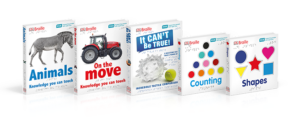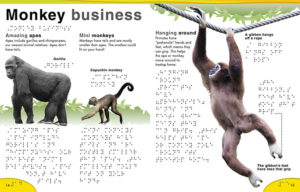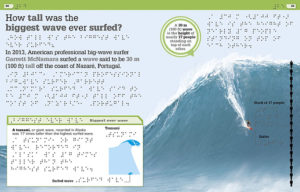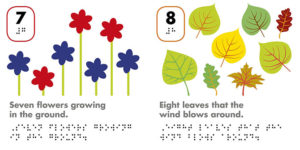Han Kang’s “The Vegetarian”, translated by Deborah Smith
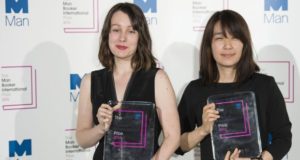
Deborah Smith (left), translator of the winning book, The Vegetarian, with author Han Kang at the Man Booker International Prize in London. Photograph: Jeff Spicer/Getty Images. ( Taken from the Internet)
She was crouching, still wearing her nightclothes, her dishevelled, tangled hair a shapeless mass around her face. Around her, the kitchen floor was covered with plastic bags and airtight containers, scattered all over so that there was nowhere I could put my feet without treading on them. Beef for shab-shabu, belly pork, two sides of black beef shin, some squid in a vacuum-packed bag, sliced eel that my mother-in-law had sent us form the countryside ages ago, dried croaker tied with yellow string, unopened packs of frozen dumplings and endless bundles of unidentified stuff dragged from the depths of the fridge. There was a rustling sound; my wife was busy putting the things around her one by one into black rubbish bags. …She kept on putting the parcels of meat into the rubbish bags, seemingly no more aware of my existence than she had been last night. Beef and pork, pieces of chicken, at least 200,000 –won of saltwater eel.
The Vegetarian or Chaesikjuuija by Han Kang was published in Korean in 2007. The Vegetarian is about Yeong-hye who decides to become a vegetarian. She is discovered by her husband quietly and methodically removing all the meat products from their refrigerator and putting them into garbage bags. A horrifying proposition as her father points out, “It’s preposterous, everyone eats meat!” Yeong-hye is reserved and rarely speaks even to her husband. She prefers to remain confined to a room in their apartment reading and reflecting. After deciding to turn vegetarian despite being more than a competent cook she inexplicably imposes the dietary restriction on her husband too. He seeks assistance from his in-laws in the hope they will be able to get some sense in to their daughter but to no avail. Slowly the mental well-being of Yeong-hye deteriorates when she begins to believe that she is photosynthesising like a plant and has to be institutionalised.
The Vegetarian sub-heading declares it to be a novel. But the published version consists of three interlinked stories told from three different points-of-view: Yeon-hye’s husband, brother-in-law and sister. While they tell the story there are marginal overlaps of the narrative but slowly and steadily the plot does move ahead in time. It covers the time from the moment Yeon-hye decides to turn vegetarian to her institutionalisation, abandoned by her husband, returns to society to live alone albeit under the supervision of her sister and then back again in an institution. During the course of this time supposedly in the name of an art installation she agrees to her brother-in-law’s suggestion to have her body covered in paint and then filmed having sex with him only to be discovered by her sister. Despite the betrayal by her sister, In-hye, does not stop caring for Yeon-hye and regularly visits her, “despite the probing gazes, that mix of suspicion, caution, repugnance, and curiousity” that she encounters from her fellow passengers en route to Ch’ukseong Psychiatric Hospital, Maseok.
It was first published as three separate “novelettes” and then compiled into a “novel” as described on the copyright page of the English edition. This is how it was published in English too in 2015. An early version of the story that developed into The Vegetarian can be read on the Granta website:http://granta.com/the-fruit-of-my-woman/ . This curiously mesmerising example of a contemporary magic realism novel went on to win the Man Booker International Prize, the first after it had been combined with the Independent Prize for Foreign Fiction. Han Kang beat other powerful contenders such as Nobel prize winner Orhan Pamuk, Elena Ferrante and Kenzaburō Ōe. From this year the prize is now awarded to a single foreign novel translated into English, the money involved—£50,000 ($72,000)—being shared equally by author and translator. Till the win Han Kang and Deborah Smith were little known in international literary circles. Interestingly enough translating this book was one of Deborah Smith’s first professional attempts and she literally struck gold. She has said many times on social media since the win that she was translating the book while learning Korean. It was pure luck that this particular book went on to achieve international acclaim. In an interview, Smith explains how, having completed a degree in English literature, she decided to become a translator. Monolingual until then, she chose Korean “pragmatically,” because she had heard there was a lively literary scene in Korea and far fewer translators than for European languages. But she also very graciously acknowledged in an article how publishing is an industry and translation is a community – “nobody’s in it for the money, largely because there usually isn’t any”. (http://www.irishtimes.com/culture/books/deborah-smith-publishing-is-an-industry-but-translation-is-a-community-1.2688760) She herself proposed The Vegetarian to an English publisher who accepted it. It is the first novel she has translated. Yet there has been criticism regarding the quality of translation from critics such as Tim Parks who refers to them as “translation niggles”. (http://www.nybooks.com/daily/2016/06/20/raw-and-cooked-translation-why-the-vegetarian-wins/ )
For someone so passionate about the translated literature it is apt Smith has inaugurated her independent publishing press, Tilted Axis Press, with Bengali writer Sangeeta Bandhopadhyay’s Panty, translated by Arunava Sinha. To commemorate Women in Translation Month* (#WITMonth ) observed in August, Deborah Smith published the second title, a South Korean novel One Hundred Shadows by Hwang Jungeun, translated by Jung Yewon.
*The Women in Translation month is an annual ritual started as recently as three years ago to address the gender imbalances in literature by blogger Meytal Radzinski at Biblibio. (http://biblibio.blogspot.in/2016/08/witmonth-2016-day-1-ready-set-go.html )
Han Kang The Vegetarian: A Novel ( Translated by Deborah Smith) Portobello Books, London, 2015. Pb. Pp. 184 Rs 499

